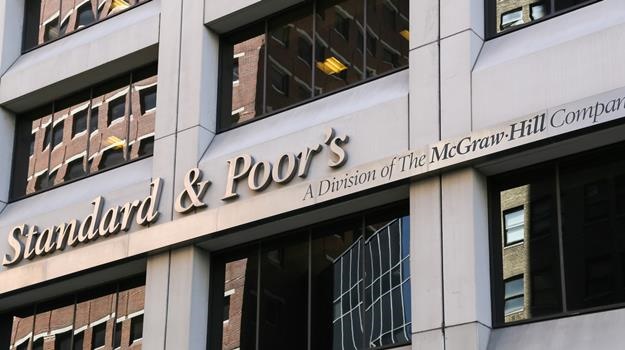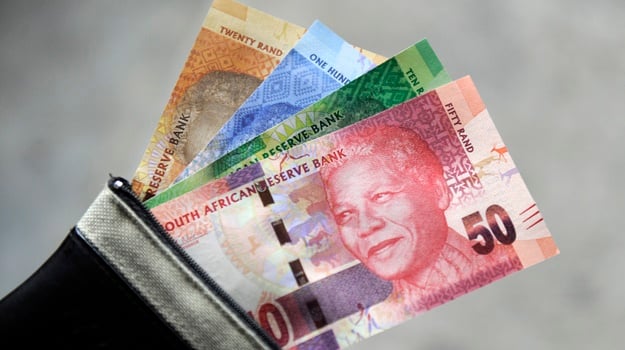Cape Town - The Guptas, Steinhoff, Cabinet reshuffles and the travails of power utility Eskom. Here are seven financial and economic stories that got South Africans talking in 2017.
Cabinet reshuffle – Gordhan out
South African markets heaved a sigh of relief when little-known backbencher David van Rooyen was replaced by Pravin Gordhan as finance minister after only three days on the job in December 2015. Gordhan had served in the post before.
But his second term as finance minister lasted only 1 year and 3 months.
He and his deputy, Mcebisi Jonas, were axed from Cabinet in late March, together with old Cabinet hands Tina Joemat-Pettersson and Derek Hanekom, among others.
Gordhan was replaced by former home affairs minister Malusi Gigaba, and Jonas by Sfiso Buthelezi.
Amid rumours of a spy report and sharp criticism of Gordhan by the ANC Youth League, President Jacob Zuma informed SA of his decision in a brief statement in late March, in which he said the changes had been made “in order to improve efficiency and effectiveness”.
The reshuffle sent the rand spiking from R12.30 to R13.90 to the US dollar. It took nine months, and the election of Cyril Ramaphosa as the ANC’s new president, for the local unit to claw itself back to where it had been before the reshuffle.
Another Cabinet reshuffle – Mahlobo takes over at energy
Zuma’s March Cabinet reshuffle wasn't his last for 2017.
In October he switched out newly-appointed Energy Minister Mmamoloko Kubayi with former minister of state security David Mahlobo.
Kubayi, who had only been in her new position for seven months, was moved to the communications portfolio.
Mahlobo’s new role was seen by some as an attempt by the Zuma administration to shore up support for South Africa’s proposed R1trn nuclear power station construction plan.
“This is all about the nuclear deal. Mahlobo has accompanied the president on visits to Russia, presumably to lay the ground for the Rosatom nuclear deal," said Lawson Naidoo of the Council for the Advancement of the South African Constitution shortly after Mahlobo’s appointment.
Speculation of a hidden hand on the reshuffle grew to such an extent that the Russian Embassy put out a statement calling reports that it had played a role behind the scenes "fake news" and "slanderous".
"Apparently, either these anonymous 'sources' [if they do exist] know more than we do, or they live in some alternate reality," it said.
National Treasury, meanwhile, tried to dampen talk of nuclear construction. Finance Minister Malusi Gigaba told journalists at a briefing ahead of his maiden mini budget that South Africa could not not afford to build nuclear power stations at present.
Steinhoff collapse
On the evening of Tuesday December 5, as Steinhoff shareholders went to bed, the share price of the Stellenbosch-headquartered retail and fashion conglomerate was at R46.25.
At close of trade the following day, it was down to R17.61. By Friday it was near R6.00. About three weeks later, on Thursday December 29, it was trading at just R4.60.
The 90% decline in its share price means that Steinhoff, formerly one of the JSE’s ten biggest firms by market capitalisation, now risks falling out of the JSE top 100.
Its market cap is around R20bn, about R180bn less than it was at the start of the month.
The precipitous share price collapse was caused by the abrupt resignation of its CEO Markus Jooste, and the announcement that PwC was investigating “accounting irregularities requiring further investigation” in its books.
The global retailer’s 2017 audited results are on hold, and it has warned investors to not rely on the figures contained in its 2016 results.
Steinhoff is now facing at least seven different probes in Europe and South Africa, and its new leadership is set to appear before Parliament in early 2018.
Then there is a long-simmering German criminal probe, and a number of possible class-action consumer lawsuits.
It has also twice been downgraded by ratings agency Moody's in the wake of Jooste's resignation.
Growth and unemployment remain sticky
South Africa’s projected growth rate for 2017 remained under 1%, far below the rate economists say is needed to make a dent in the country's stubbornly high unemployment rate.
While the GDP growth rate did perk up later in the year, this wasn't enough to kickstart the economy into creating jobs.
While the official GDP growth rate figures will only be announced next year, there was largely consensus that it would not breach 1%.
Lesetja Kganyago, governor of the South African Reserve Bank, said on September 21 that the bank's forecast for GDP growth for 2017 was 0.6%. The International Monetary Fund, meanwhile, in October cut its SA growth forecast for 2017 from 1% to 0.7% due to “political uncertainty”.
SA's unemployment rate, meanwhile, remained at 27.7%, Stats SA announced in late October.
This is more than twice the highest rate of SA's BRICS partners. While India, Russia and China all have unemployment figures high in the single digits, Brazil's unemployment was 12.6% in late September.
Downgrades and fears of further downgrades
International ratings agencies have little regard for SA’s sleep cycle. For example, the hotly-anticipated announcement by Moody's and S&P Global on whether they would junk SA's local currency sovereign debt rating was made near midnight on Friday November 24.
The decision was especially important as both ratings agencies at the time had SA’s long-term local currency rating at one notch above non-investment grade, or junk.
If both had downgraded SA to junk simultaneously, the country would have been automatically expelled from some important world bond indices, which would in turn have lead to billions of rand leaving the country.
While S&P did downgrade SA, Moody’s was more circumspect and left the local currency credit rating unchanged, although it did place the country on review for downgrade.
Moody’s said it would relook SA's credit rating after the 2018 budget, which is set to be delivered in mid-February. "This will also allow Moody's to assess the policy implications of political developments during the review period and the likelihood of pressures on South Africa's key policy-making institutions persisting," it said.
Both ratings agencies also downgraded, or placed on review for downgrade, numerous SA companies, from banks and major South African cities and municipalities, to insurance groups and state-owned entities.
The ups and downs of the rand
One of the most talked about and most read series of stories of 2017 had to do with the rand.
The local currency started the year at about 13.80 to the dollar, and strengthened slowly until March, when Zuma's abrupt Cabinet reshuffle caused it to fall from around 12.40 to 13.90 in a week.
It then traded in the band of R12.60 to R13.60 to the greenback, but again started falling rapidly when Gigaba presented his maiden mini budget speech in October.
Rumours of yet another Cabinet reshuffle to oust Cyril Ramaphosa as deputy president pushed the unit to eventually reach a high of R14.47/$ in early November, with analysts predicting it could break the R15.00/$ barrier by year-end.
The reshuffle never happened, and the rand started strengthening in the run-up to the ANC’s national conference on positive sentiment that Cyril Ramaphosa would win.
In the end, despite a partial ratings downgrade and flat growth figures, the rand reached a two-and-a-half year high of R12.23/$ in Thursday's trading session. On Friday morning it was trading at R12.40 to the greenback.
#GuptaLeaks and State Capture
In late May City Press and the Sunday Times published front page leads based on a “series of explosive emails" that the two newspapers said showed the extent of the controversial Gupta family’s influence in South Africa's highest corridors of state power.
At the time only a handful of journalists knew that more emails had been leaked.
A few days later, investigative journalism outfits Scorpio and amaBhungane published an article to say they were in possession of a "much wider trove" of emails. They had been leaked "a few hundred gigabytes of information containing between 100 000 and 200 000 unique emails and a host of other documents".
"This we call the #GuptaLeaks," they said.
The Sunday Times and City Press, it turned out, had been leaked a selection of a few hundred emails from the larger cache that amaBhungane and Scorpio had in their possession.
By June 5, News24 had partnered with the two outfits to uncover the extent of the Guptas' influence over key politicians and a web of dealings between the inner sanctum of the Gupta family and its lieutenants and state-owned companies and top global business outfits KPMG, SAP, Bell Pottinger and McKinsey.
By late December, the trio had published nearly 70 stories about what the GuptaLeaks revealed about the business dealings of dozens of Gupta-linked companies, SA state-owned enterprises, international banks, murky Dubai front companies and more.
Their reporting, coupled with continuous coverage by other news organisations, had real world effects. British public relations firm Bell Pottinger, for example, was undone by revelations contained in the emails that it had sought to stoke racial tensions in SA.
Power utility Eskom was forced to come clean about its relationship with Gupta-linked firm Trillian and US consultancy McKinsey.
In Parliament's inquiry into the misuse of public funds at Eskom, executives were quizzed about emails included in the leaked documents.
It is not over yet, and Fin24 will be there along with others to expose more of the rot and keep our readers informed on this and other business news throughout the new year!
WATCH the video




 Publications
Publications
 Partners
Partners
















